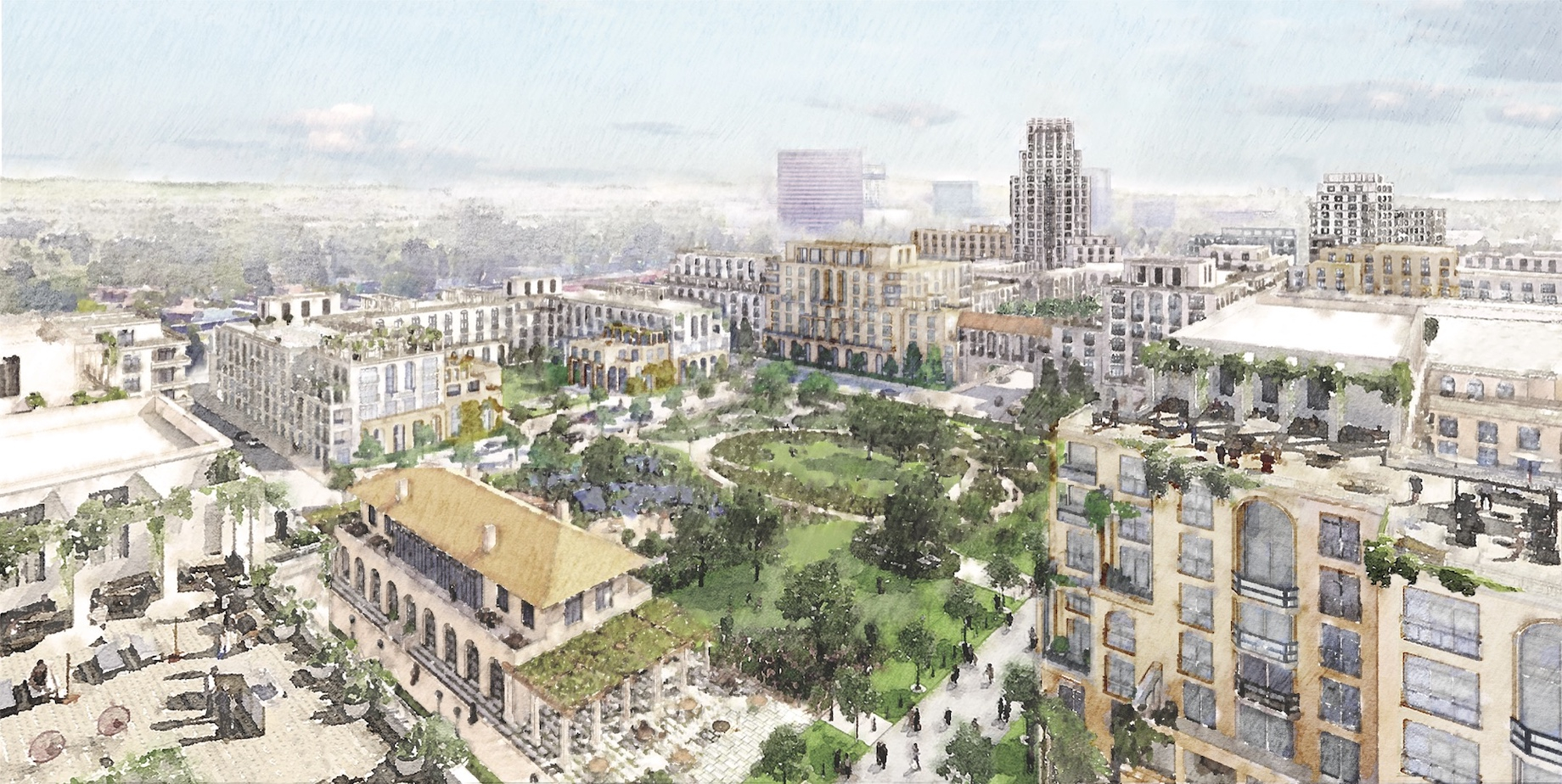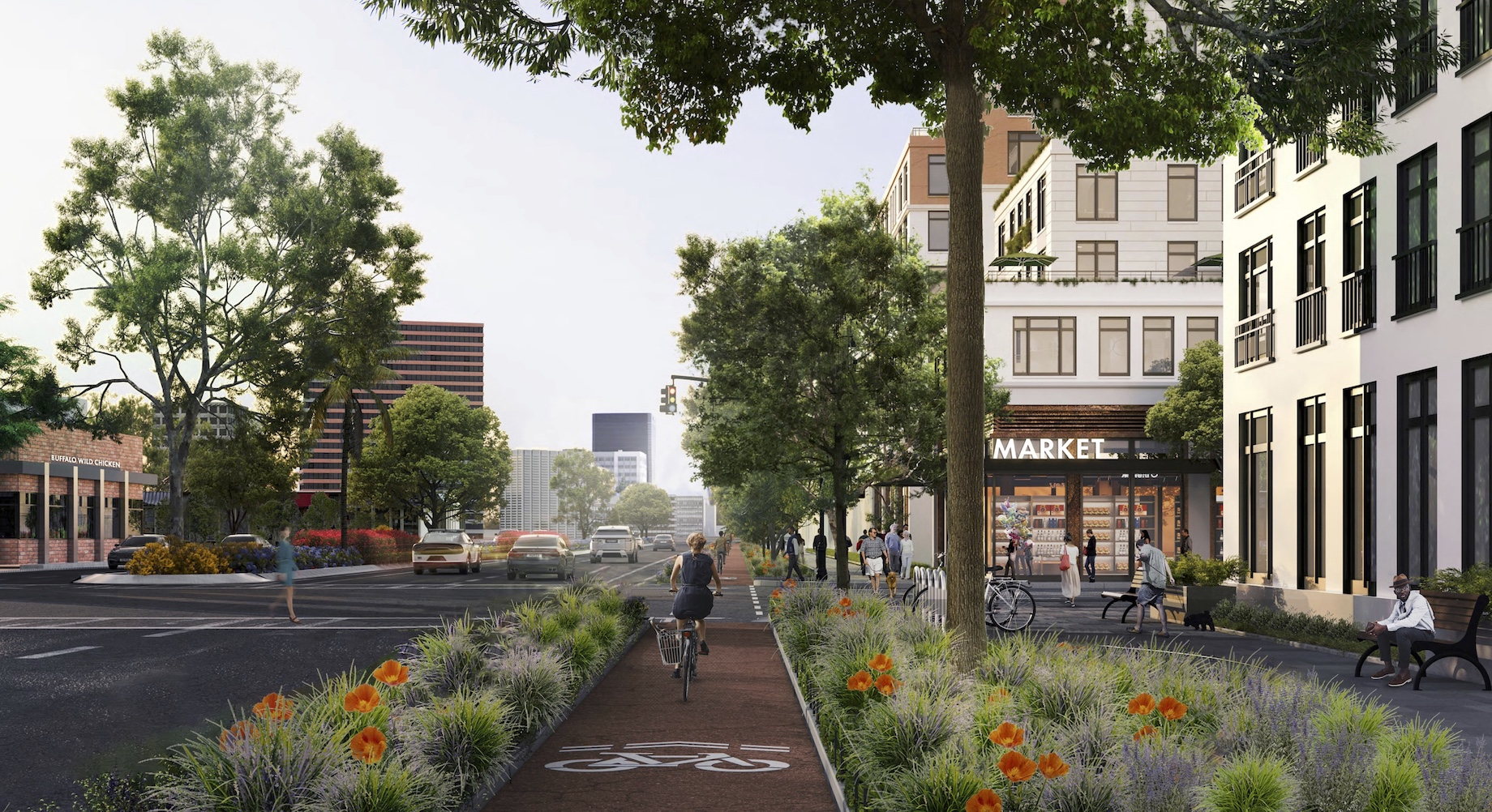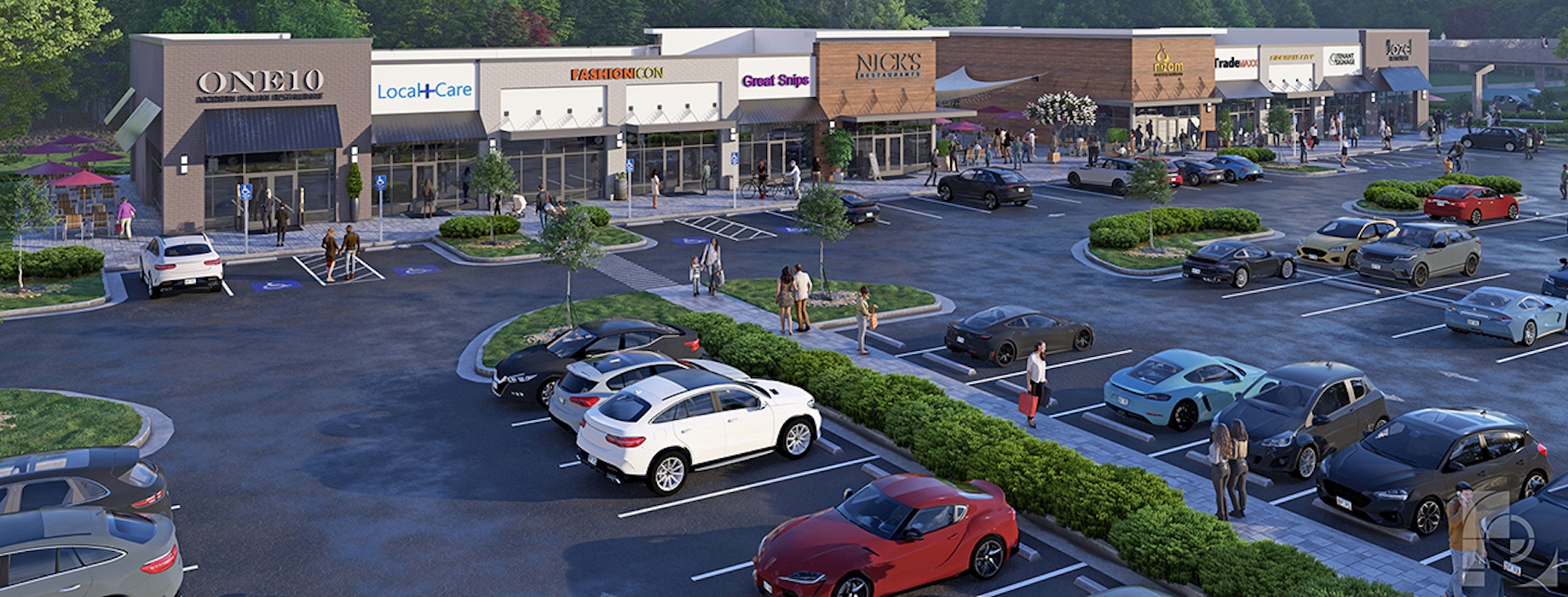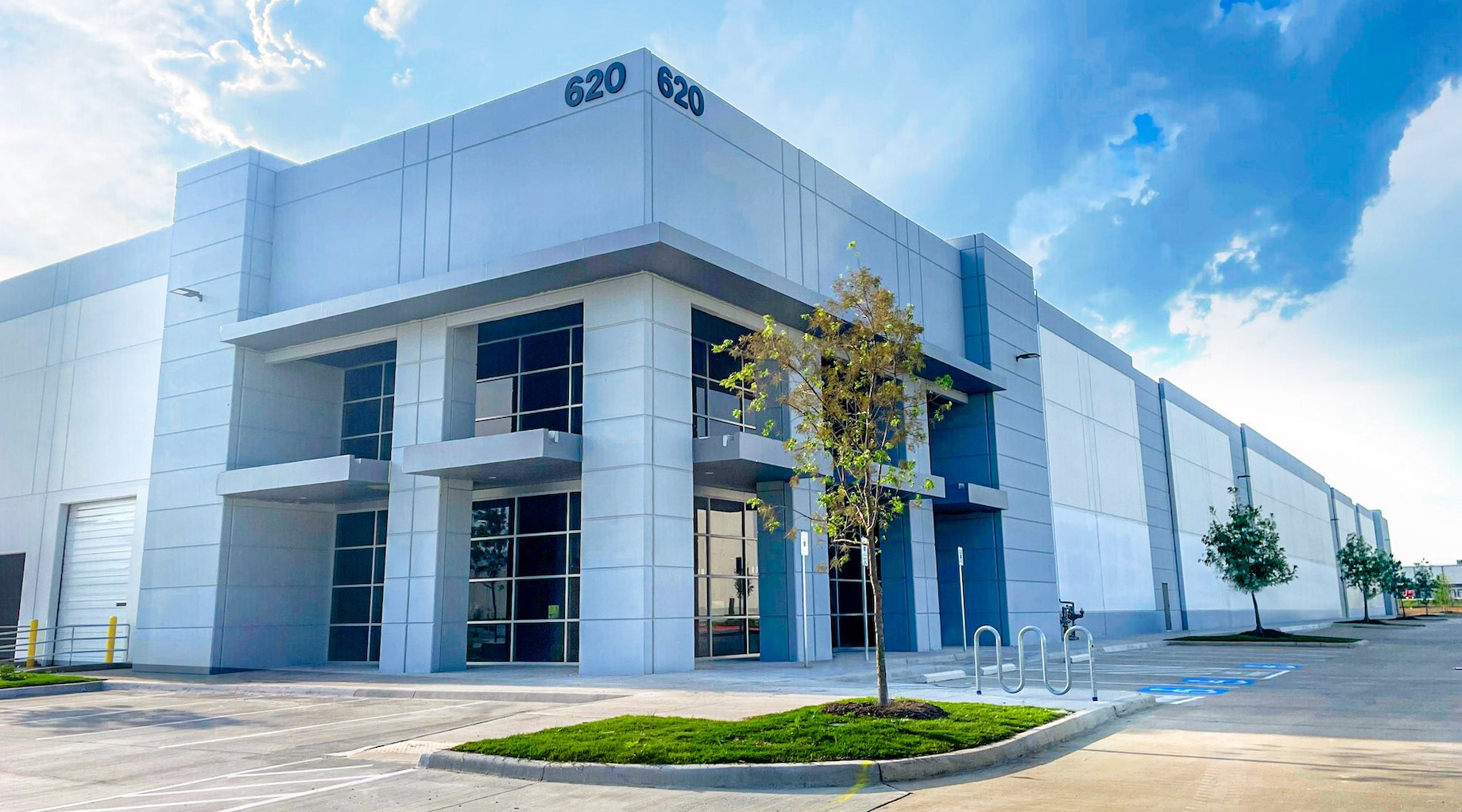A $3 Billion Mall Redo and 2 More Projects Mixing Retail and Multifamily
A $3 billion redevelopment plan for the 50-year-old Metro Town Center mall in the Los Angeles suburb of Santa Ana received unanimous approval from city council. A second and final vote is expected Oct. 15.
Related California, a subsidiary of New York City-based Related, plans to convert the 41-acre, 1970s-era mall into a mixed-use “urban village” with 350,000 square feet of shops and restaurants, 3,750 apartments, 200 senior living units, 13 acres of open space and a 250-room hotel.

The Callens family owned the land and operated a lima bean farm there from 1903 to the 1970s, when it became Metro Town Square.

The 41 acres span two city blocks. Above is Related California’s imagining of landscaped medians and separated bike paths can help pedestrians and bikers interact with Callens Commons, the busy street that bisects the site.
Related California describes this project, dubbed Related Bristol for its location along South Bristol Street, as “the largest private investment in Santa Ana’s long history.” Related California president Gino Canori said: “Related Bristol will be a welcoming place for all, serving not just the residents who may live on-site but the surrounding neighborhoods and greater Santa Ana region. It is a transformative project that will impact this city and central Orange County for decades to come.”
The first phase would start in early 2026, and two more phases would complete the 10-year project.
Retail Will Rise to Serve an Apartment Building in the Atlanta Area
A four-acre shopping development in Sugar Hill, Georgia, featuring one building at 6,035 square feet and another at 7,240 square feet — will rise adjacent to the 306-unit Conclave Sugar Hill apartments and to the city’s master-planned downtown district. Novare Group is developing the property, and Ackerman Retail is taking care of leasing. “The city has created a vibrant live-work-play district, and we’re looking forward to adding a great mix of restaurants and retail to complement the city’s downtown amenities,” Ackerman Retail president Leo Wiener said.

Two buildings totaling 13,275 square feet of retail will rise in Sugar Hill, Georgia near a 306-unit apartment building.
Austin Apartments Will Densify with Retail and Hotel
In Austin, Texas, near the popular Domain retail, restaurant, multifamily, hotel and office district, a 113-key Extended Stay America hotel that had become the Studio Domain apartment complex is on its way to greater density. Krea LLC plans to turn the three-acre site into 350 multifamily units, 210 hotel rooms and 20,000 square feet of ground-floor retail, according to Community Impact.
More from C+CT
How Retail and Multifamily Work Together
How Retail and Hotel Work Together
Tech Moves by Sam’s Club and Save A Lot to Improve the Customer Experience
In Dallas-Fort Worth suburb Grapevine, Texas, Walmart-owned Sam’s Club is opening its first all-digital store. Translation: No checkout lines.
Once inside the warehouse club, each customer will rely on a smartphone app called Scan & Go to ring up purchases as they stroll through the aisles, CNBC reported. “In the area typically reserved for cash registers, the company will display online-only items as wide-ranging as a 12-foot Christmas tree and a five-carat lab-grown diamond. Members can scan QR codes and go straight to the items in the app.”
ALSO CHECK OUT: QR code-enabled, in-person shopping at Bruce Wayne’s House
In the video below, Sam’s Club president and CEO Chris Nicholas discussed the technology that enables the checkout-free experience, describing “computer vision arches” at store exits that can see customers’ carts and compare that to the inventory the customers bought via the Scan & Go app. That discussion begins at seven minutes and 30 seconds in:
Sam’s Club is reopening the store two years after a tornado damaged it. Nicholas said the location will become a testing ground for the retailer’s latest features and technology.
And in Brooklyn, New York, grocery chain Save A Lot is trying out some new technology of its own. Inside a 4,000-square-foot warehouse operated by a Save A Lot vendor, robotic arms grab plastic bins of groceries and hand them to dozens of robots on the ground, The Wall Street Journal reported. “The robots send the items to workers, who pack them into grocery bags before handing them off to Uber drivers for delivery,” the newspaper said.
This automated system can assemble a 50-item grocery order in six to eight minutes. Prices for the robot-retrieved groceries will be about 30% lower than groceries sold at traditional supermarkets, according to the WSJ.
Retail Contributes to DFW Industrial Milestone
Retailers in Dallas-Fort Worth have loads of space to stash their inventory. In a new report, commercial real estate services company Cushman & Wakefield said the industrial space throughout the DFW metro area has just surpassed 1 billion square feet. That’s equivalent to 179 Mall of Americas. Retail ranks among the top sectors for industrial rentals. “Despite macroeconomic headwinds over the past year, the DFW industrial market has continued its compelling growth story,” said Chris Hipps, Cushman & Wakefield managing principal in Texas.

620 S. Western Blvd. in Denton, Texas. Photo courtesy of Cushman & Wakefield
Music Businesses Band Together to Create “Music Mall”
Three music businesses in Portland, Oregon, are drumming up business in a novel way. The Rhythm Traders drum shop recently welcomed two other Portland music businesses to its building at 3904 N.E. Martin Luther King Jr. Blvd.: Eastside Guitar Repair and Hank’s Music Exchange. This new one-stop music shop goes by the name MLK Music Mall.
Rhythm Traders owner Brad Boynton told the Portland Tribune: “We wanted to show our commitment to Portland-area musicians by providing a space where the hang is still alive, a place where players can demo the instruments, receive expert advice, take lessons and get their gear repaired all under the same roof.”
The businesses hope the new venture contributes to their long-term stability, according to OPB’s Think Out Loud.
By John Egan
Contributor, Commerce + Communities Today